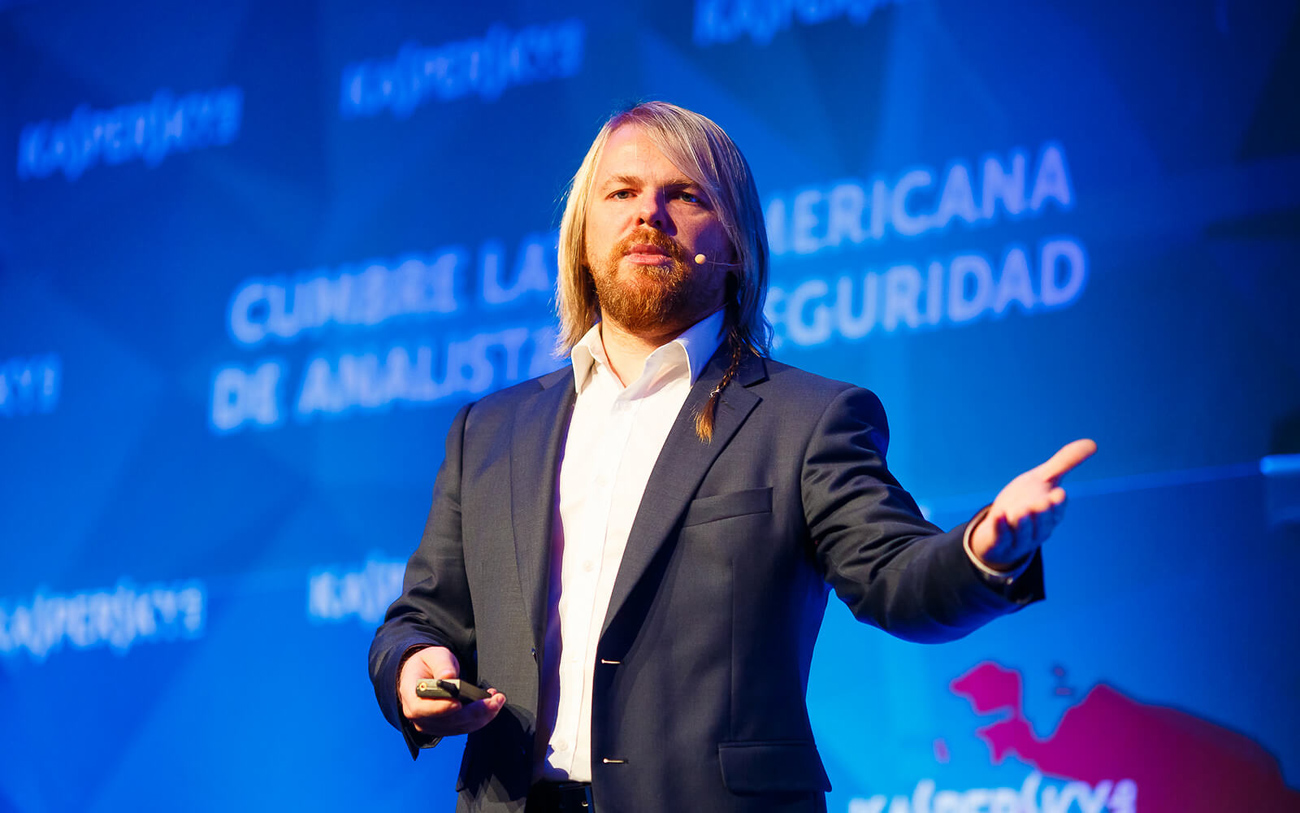Toward a totalitarian future? Digital DNA offers government huge powers

By using a combination of biometric data - voice, pulse, and fingerprints – it’s possible for their actions even to be predicted. Chernyshev calls this "Digital DNA," and he said everyone has it. Photo: Evgeny Chereshnev.
Press PhotoYevgeny Chereshnev, an employee of Kaspersky Lab, believes every Internet user leaves a unique `footprint’ that allows identifying people without usernames or passwords. By using a combination of biometric data - voice, pulse, and fingerprints – it’s possible for their actions even to be predicted. Chereshnev calls this "Digital DNA," and he said everyone has it.
Chereshnev conducted an experiment to test this theory. A subcutaneous implant spent two years in Yevgeny's hand and collected all his possible digital information, including keying speed, range of vocabulary on social networks, and biometric data.
"My team studied the danger of total digital surveillance and the possible manipulation of user’s behaviour on the basis of analyzing and modifying behavior patterns," said Chereshnev. "I saw the future as it might be, and was horrified. That’s why all my energies, knowledge, passion and experience are now channeled into preventing a future of this sort - a future of total monitoring of the individual."
Chereshnev described the technology at a TED conference in New York at the end of January, and as well as earlier in Kazan.
Digital Slavery Redemption. Source: TEDx Talks/YouTube
"People are under constant monitoring from connected devices, and are effectively deprived of the possibility of remaining anonymous," said Chereshnev. "Each one of us moves their mouse and cursor in a unique manner and with a certain speed in particular areas of the screen, making predictable misspellings along the way. All movement, words, and payments can be intercepted and used by someone."
He believes hackers will soon be able to steal and copy other people's identities, and that large companies will gain and exploit a deep pool of knowledge about their clients. "Digital DNA is a key to the psychology of individuals," added Chereshnev.
If you have access to a person's digital DNA you will be able not only to identify them online and gain access to their data, but also to manipulate their desires, the travel they take, their pastimes, knowledge and even their bad habits.
Chernyshev is calling for this information, unique to each one of us, to be physically and legally the property of each individual. "No state or service provider should have the right of access to a person's digital DNA without the owner’s consent," Chereshnev said.
Read more: Russian security expert cracks Facebook and makes $40,000>>>
If using any of Russia Beyond's content, partly or in full, always provide an active hyperlink to the original material.
Subscribe
to our newsletter!
Get the week's best stories straight to your inbox